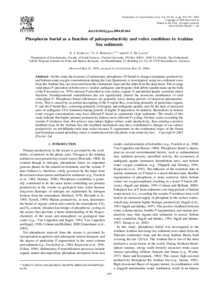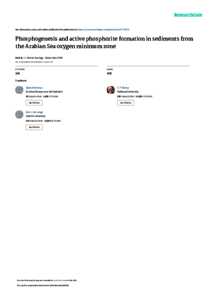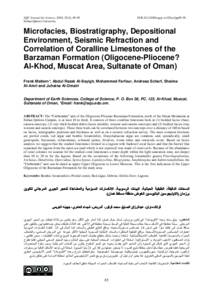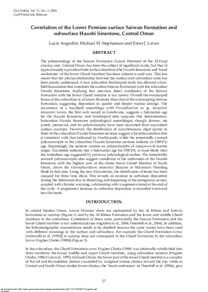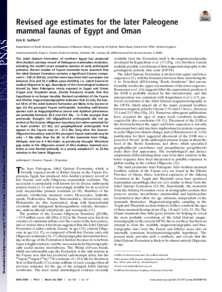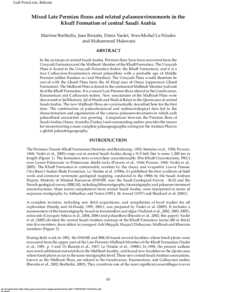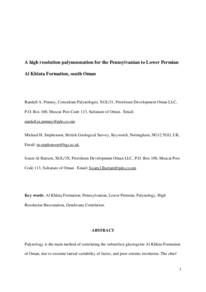Document
Phosphorus burial as a function of paleoproductivity and redox conditions in Arabian Sea sediments.
Identifier
DOI: 10.1016/j.gca.2004.05.044
Source
Geochimica et Cosmochimica Acta. v. 69, 4, p. 919-931
Contributors
Reichart, G.J., Author
De Lange, G.J., Author
Country
Netherlands.
City
Amsterdam
Publisher
Elsevier.
Gregorian
2005-02-15
Language
English
English abstract
In this study the response of sedimentary phosphorus (P) burial to changes in primary productivity and bottom water oxygen concentrations during the Late Quaternary is investigated, using two sediment cores from the Arabian Sea, one recovered from the continental slope and the other from the deep basin. The average solid-phase P speciation in both cores is similar, authigenic and biogenic (fish debris) apatite make up the bulk of the P inventory (ca. 70%);whereas P adsorbed to iron oxides, organic P, and detrital apatite constitute minor fractions. Postdepositional redistribution has not significantly altered the downcore distribution of total solid-phase P. Phosphorus burial efficiencies are generally lower during periods of increased paleoproductivity. This is caused by (a) partial decoupling of the P export flux, consisting primarily of particulate organic P, and the P burial flux, consisting primarily of biogenic and authigenic apatite; and (b) the lack of increased rates of authigenic CFA formation during periods of higher P deposition. In addition, fluctuations in bottom water oxygen concentrations may have affected P burial in continental slope sediments. The results of this study indicate that higher primary productivity induces more efficient P cycling. On time scales exceeding the oceanic P residence time, this process may induce higher surface water productivity, thus creating a positive feedback loop. In the Arabian Sea, this feedback mechanism may have contributed to changes in sea surface productivity on sub-Milankovitch time scales because P, regenerated on the continental slopes of the Oman and Somalian coastal upwelling zones, is reintroduced into the photic zone relatively fast.
ISSN
0016-7037
Category
Journal articles

